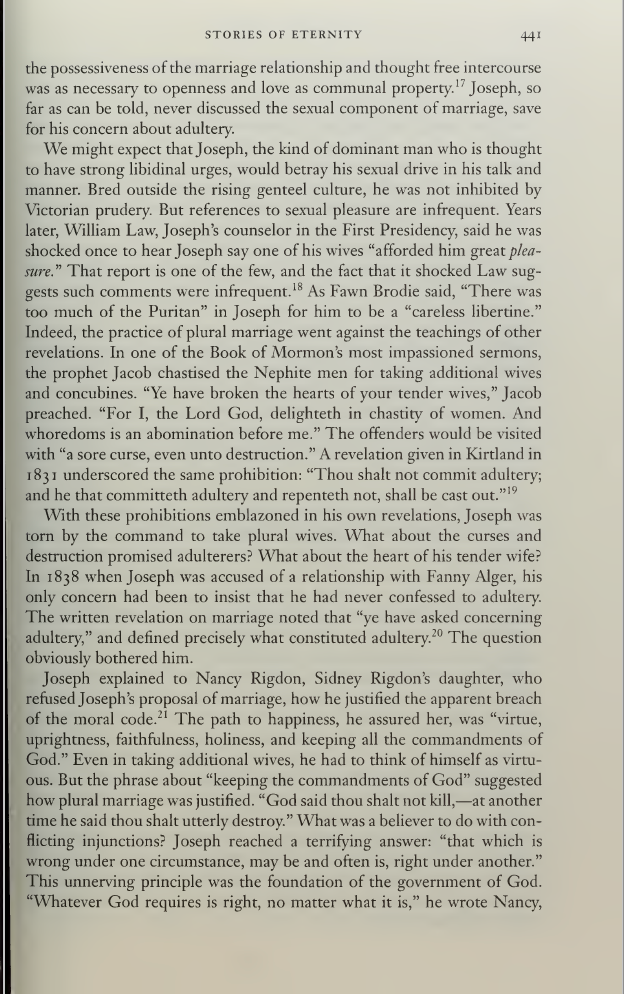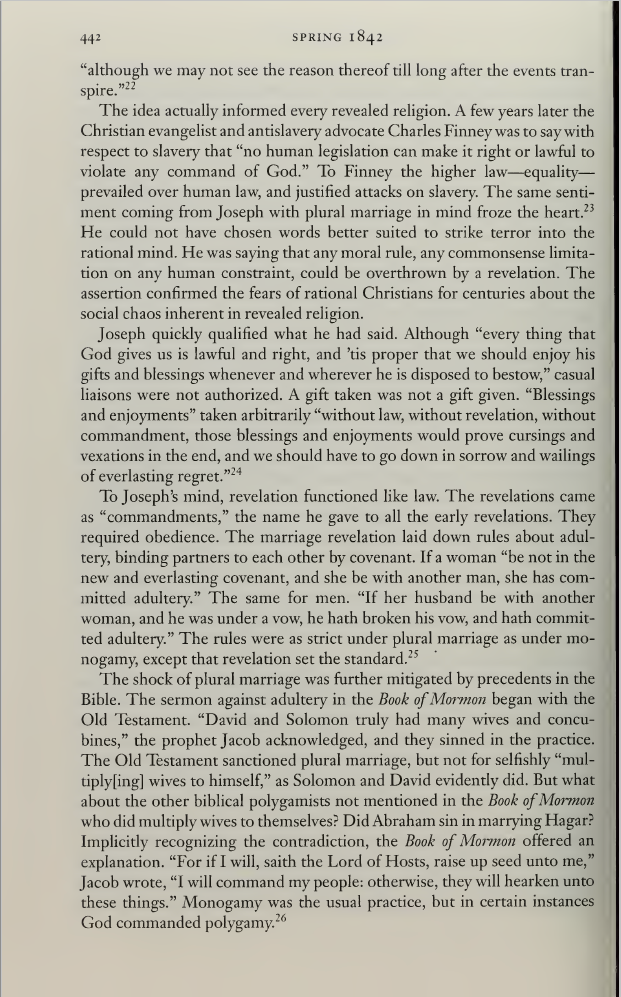Richard Lyman Bushman discusses the "Happiness Letter" and its supposed intent relating to plural marriage.
- Type
- Book
- Source
- Richard Lyman Bushman LDS
- Hearsay
- Secondary
- Reference
Richard Lyman Bushman, Joseph Smith: Rough Stone Rolling (New York, NY: Alfred A. Knopf, 2005), 441–442
- Scribe/Publisher
- Alfred A. Knopf
- Audience
- Reading Public
- Transcription
Joseph explained to Nancy Rigdon, Sidney Rigdon's daughter, who refused Joseph's proposal of marriage, how he justified the apparent breach of the moral code. The path to happiness, he assured her, was "virtue, uprightness, faithfulness, holiness, and keeping all the commandments of God." Even in taking additional wives, he had to think of himself as virtuous. But the phrase about "keeping the commandments of God" suggested how plural marriage was justified. "God said thou shalt not kill,—at another time he said thou shalt utterly destroy." What was a believer to do with conflicting injunctions? Joseph reached a terrifying answer: "that which is wrong under one circumstance, may be and often is, right under another." This unnerving principle was the foundation of the government of God. "Whatever God requires is right, no matter what it is," he wrote Nancy, "although we may not see the reason thereof till long after the events transpire."
The idea actually informed every revealed religion. A few years later the Christian evangelist and antislavery advocate Charles Finney was to say with respect to slavery that "no human legislation can make it right or lawful to violate any command of God." To Finney the higher law—equality—prevailed over human law, and justified attacks on slavery. The same sentiment coming from Joseph with plural marriage in mind froze the heart. He could not have chosen words better suited to strike terror into the rational mind. He was saying that any moral rule, any commonsense limitation on any human constraint, could be overthrown by a revelation. The assertion confirmed the fears of rational Christians for centuries about the social chaos inherent in revealed religion.
Joseph quickly qualified what he had said. Although "every thing that God gives us is lawful and right, and "tis proper that we should enjoy his gifts and blessings whenever and wherever he is disposed to bestow," casual liaisons were not authorized. A gift taken was not a gift given. "Blessings and enjoyments" taken arbitrarily "without law, without revelation, without commandment, those blessings and enjoyments would prove cursings and vexations in the end, and we should have to go down in sorrow and wailings of everlasting regret."
- Citations in Mormonr Qnas
The B. H. Roberts Foundation is not owned by, operated by, or affiliated with the Church of Jesus Christ of Latter-day Saints.


